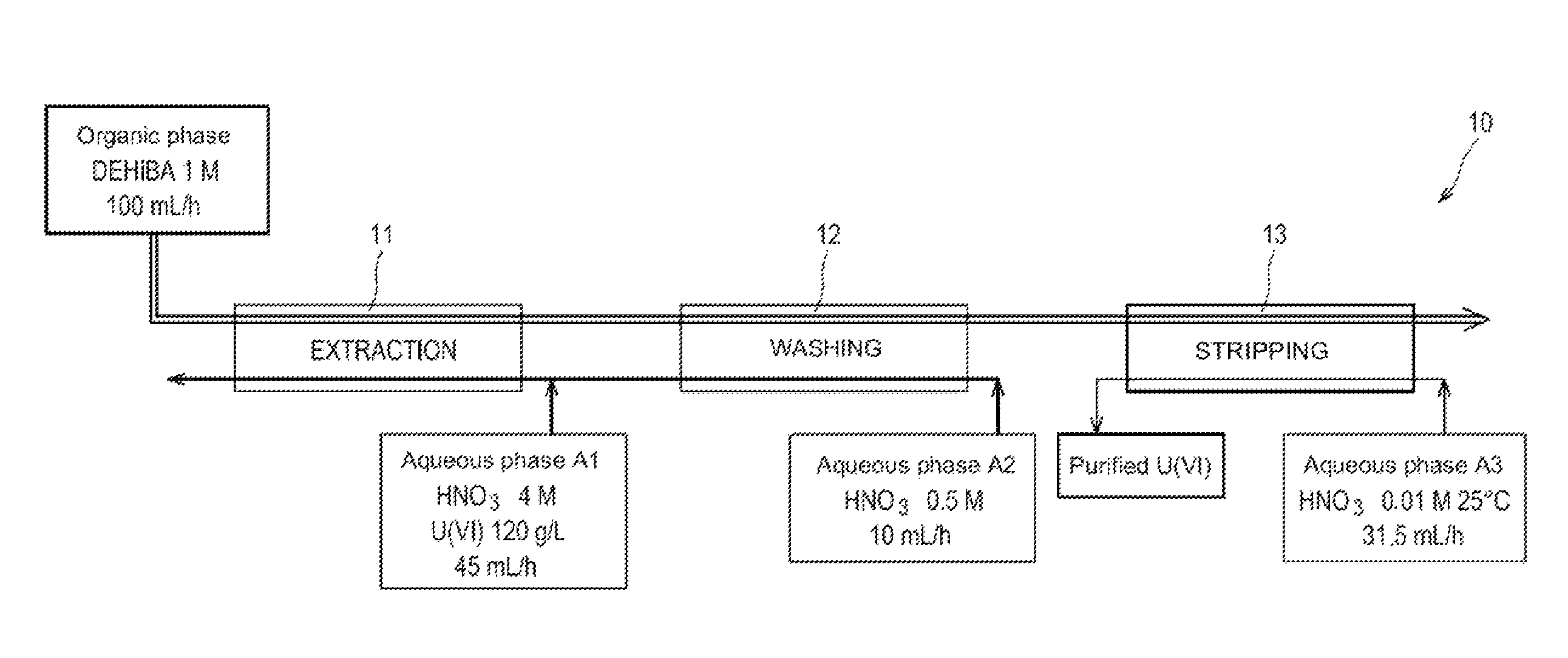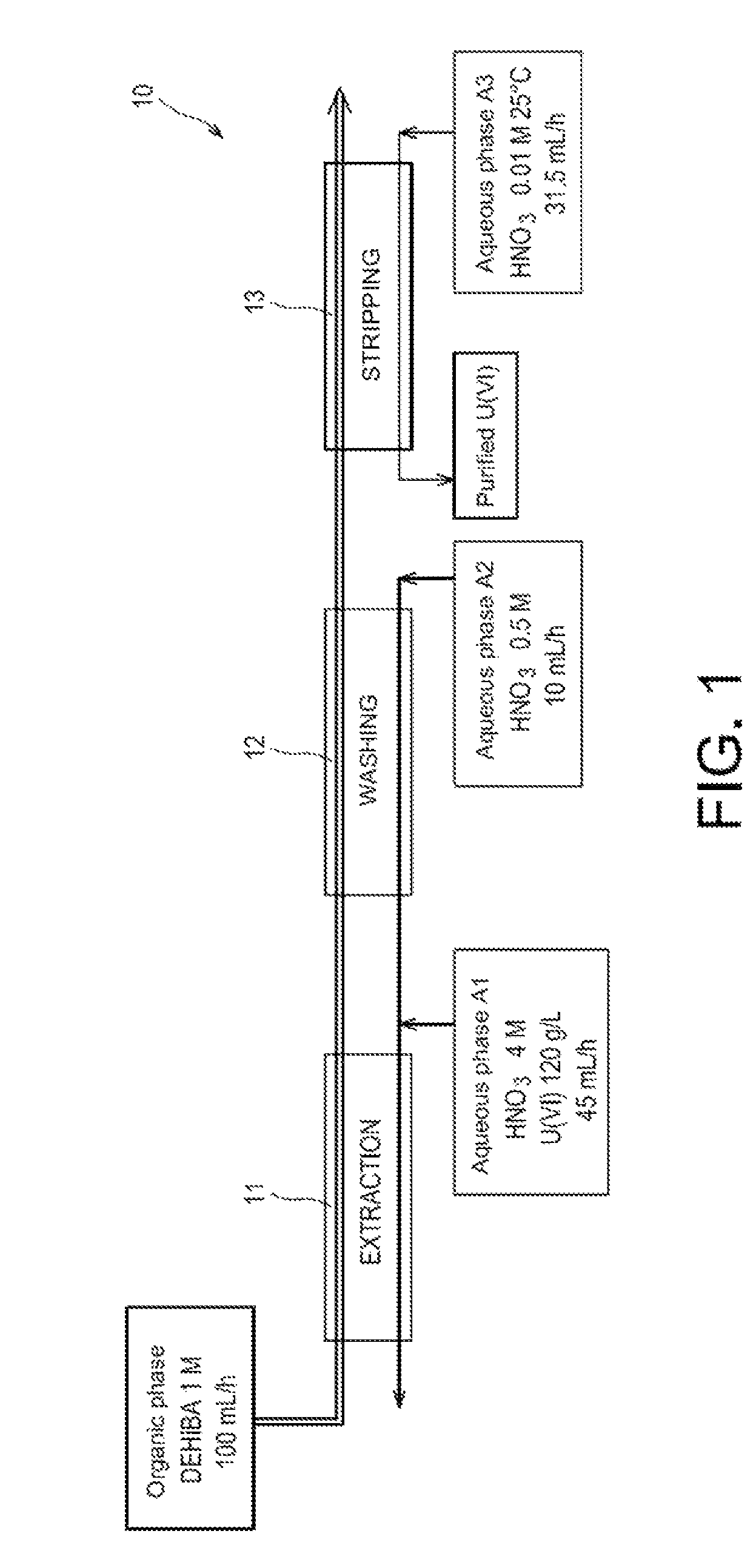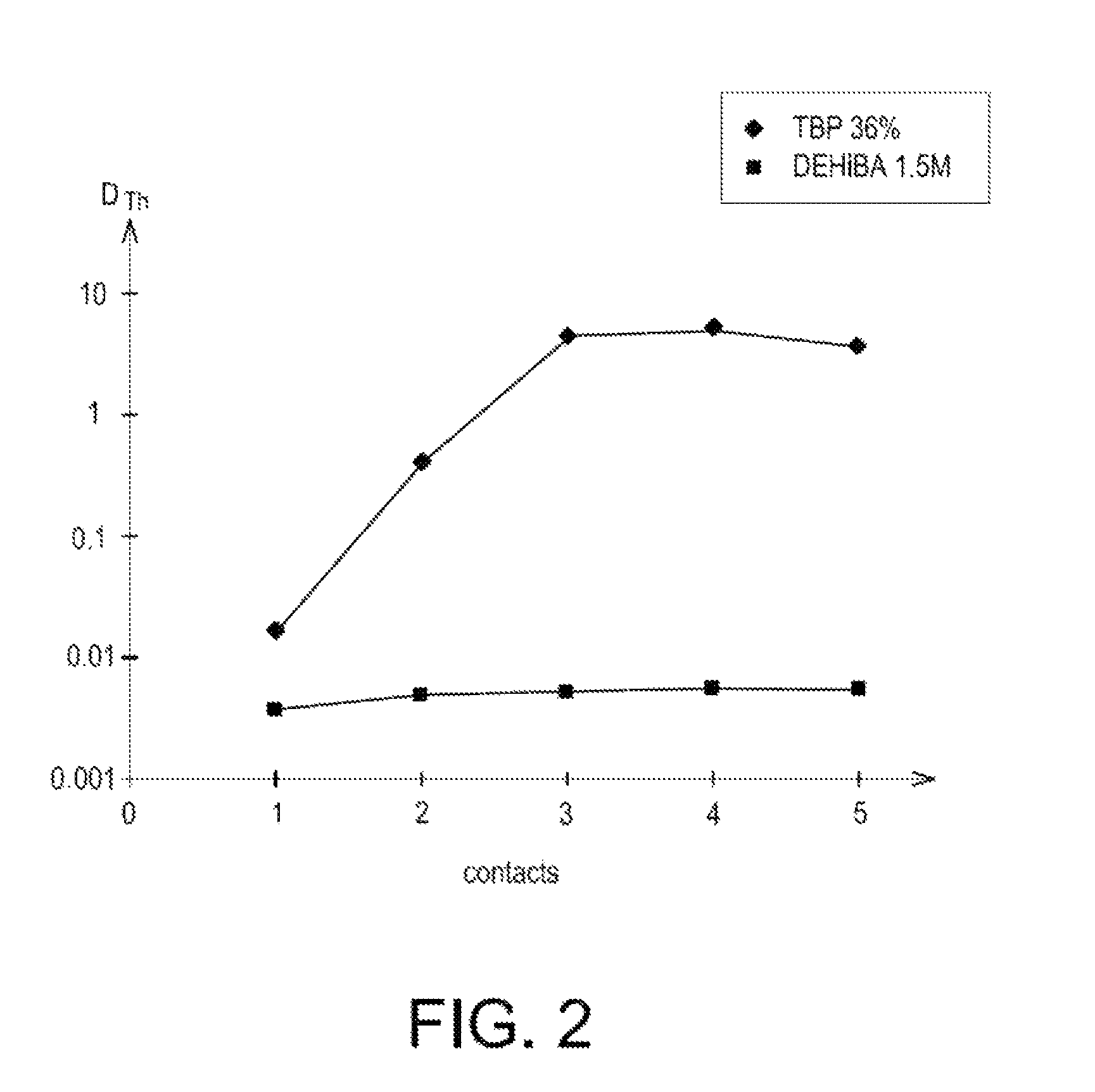Method for purifying the uranium from a natural uranium concentrate
a technology of natural uranium concentrate and purification method, which is applied in the direction of uranium compounds, greenhouse gas reduction, separation processes, etc., can solve the problems of thorium accumulation, difficult stripping operation, and limited exploitation of the method and effluent managemen
- Summary
- Abstract
- Description
- Claims
- Application Information
AI Technical Summary
Benefits of technology
Problems solved by technology
Method used
Image
Examples
example 1
[0052]First of all reference is made to FIG. 1 which schematically illustrates a first test for applying the method of the invention in batteries of mixers-decanters.
[0053]This test was conducted in an installation 10 comprising:[0054]a first battery, referenced as 11, of 16 mixers-decanters, dedicated to the extraction of uranyl nitrate from the aqueous phase A1;[0055]a second battery, referenced as 12, of 8 mixers-decanters, dedicated to the washing of the organic phase obtained at the end of the extraction; and[0056]a third battery, referenced as 13, of 16 mixers-decanters, dedicated to the stripping of uranyl nitrate from the organic phase obtained at the end of the washing of this phase.
[0057]Were used:[0058]as an organic phase: a phase containing 1 mol / L of DEHiBA in TPH and circulating at a flow rate of 100 mL / hour in three batteries of mixers-decanters;[0059]as an aqueous phase A1: a solution of 4 mol / L of nitric acid and 120 g / L of uranium (in the form of uranyl nitrate), a...
example 2
[0067]The solubility of DEHiBA in an aqueous phase was appreciated by conducting a test in mixers-decanters similar to the one described in Example 1 hereinbefore and by measuring the total organic carbon (or TOC) present in the aqueous phase exiting the battery 11 (called > hereafter) on the one hand and, in the aqueous phase exiting the battery 13 and containing the purified uranyl nitrate (called > hereafter) on the other hand.
[0068]The total organic carbon was measured by means of a thermal TOC-meter in the aqueous phases as obtained after decantation, i.e. without submitting these phases to any centrifugation.
[0069]Table 1 hereafter shows for both tested aqueous phases, their acidity, the TOC value obtained and the conversion of this value into DEHiBA equivalent, this conversion having been carried out starting from the assumption that the whole organic carbon present in the aqueous phases stems from this extractant.
[0070]
TABLE 1ExtractionAqueous phaseraffinateU ProductionHNO3 ...
example 3
[0074]The selectivity of DEHiBA for uranium relatively to the impurities which are in majority present in natural concentrates of uranium or which are a penalty in the subsequent steps for converting and enriching the uranium, was also appreciated by conducting two series of tests.
[0075]The first series of tests consisted of determining the distribution coefficients of thorium(IV), molybdenum(VI), zirconium(IV), iron(III), calcium(II) and vanadium(V) at the end of a single contact in tubes between a solvent phase containing 1.5 mol / L of DEHiBA in Isane IP 185 and nitric acid solutions containing these cations, either in the presence or not of 30 g / L of uranium, and having different acidities (from 0.5 to 4 M).
[0076]For each test, the aqueous and organic phases were put into contact, volume to volume, and left with stirring for 1 hour, at a constant temperature of 25° C. Next, after decantation and separation of these phases, the concentration of cations was determined in the aqueous...
PUM
| Property | Measurement | Unit |
|---|---|---|
| temperature | aaaaa | aaaaa |
| concentration | aaaaa | aaaaa |
| concentration | aaaaa | aaaaa |
Abstract
Description
Claims
Application Information
 Login to View More
Login to View More - R&D
- Intellectual Property
- Life Sciences
- Materials
- Tech Scout
- Unparalleled Data Quality
- Higher Quality Content
- 60% Fewer Hallucinations
Browse by: Latest US Patents, China's latest patents, Technical Efficacy Thesaurus, Application Domain, Technology Topic, Popular Technical Reports.
© 2025 PatSnap. All rights reserved.Legal|Privacy policy|Modern Slavery Act Transparency Statement|Sitemap|About US| Contact US: help@patsnap.com



